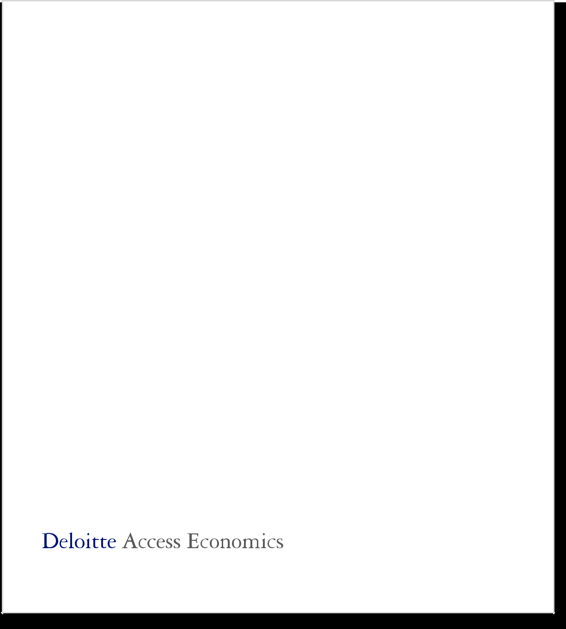42

Digital Disruption and
Exchanging Value
Deloitte’s 2012 report, Building the Lucky Country #2: Digital disruption – Short fuse, big bang?45 outlined how new digital technologies are disrupting customer transactions, currency and payments:
• Mobile payments are gaining prominence, with many transactions moving to mobile phones, tablets and other portable devices because of their convenience
• NFC-technology is enabling faster and more efficient transactions through platforms such as the tap-and-pay feature of payWave and PayPass
• New mobile applications and products such as virtual wallets with integrated payment options are streamlining payments processes
• Online and mobile payments are enabling companies to develop web applications and e-commerce platforms, providing new and integrated ways for businesses to reach customers.
The report found that customers were driving many
of these trends as they sought ways to make payments more efficient and to reduce the time taken for financial transactions. The report highlighted the need for businesses to provide a better customer experience by offering the more efficient payment methods now available using these new technologies. It also noted that more efficient new payment technologies could
cut costs for businesses.
Work conducted in 2015 by the World Economic Forum in collaboration with Deloitte suggests the digital disruption of transactions and payments may have significant implications for financial institutions and payment providers. As businesses seek to provide their customers with more streamlined and integrated payment methods, financial institutions and payment providers may have less control over the elements of a transaction. This reduced visibility means that becoming the default option for businesses and customers will become critical – for example, being the payment platform linked to specific services (such as PayPal) or the payment instrument that is pre-selected when a user ‘taps’ their virtual wal et. On the other hand, institutions that are able to capture large market segments will have access to huge amounts of information on spending patterns, al owing them to build a more holistic understanding of users’
preferences and subsequently create more competitive offerings.
The Future of Exchanging Value Cryptocurrencies and the trust economy 43

6
Rum and cigarettes





